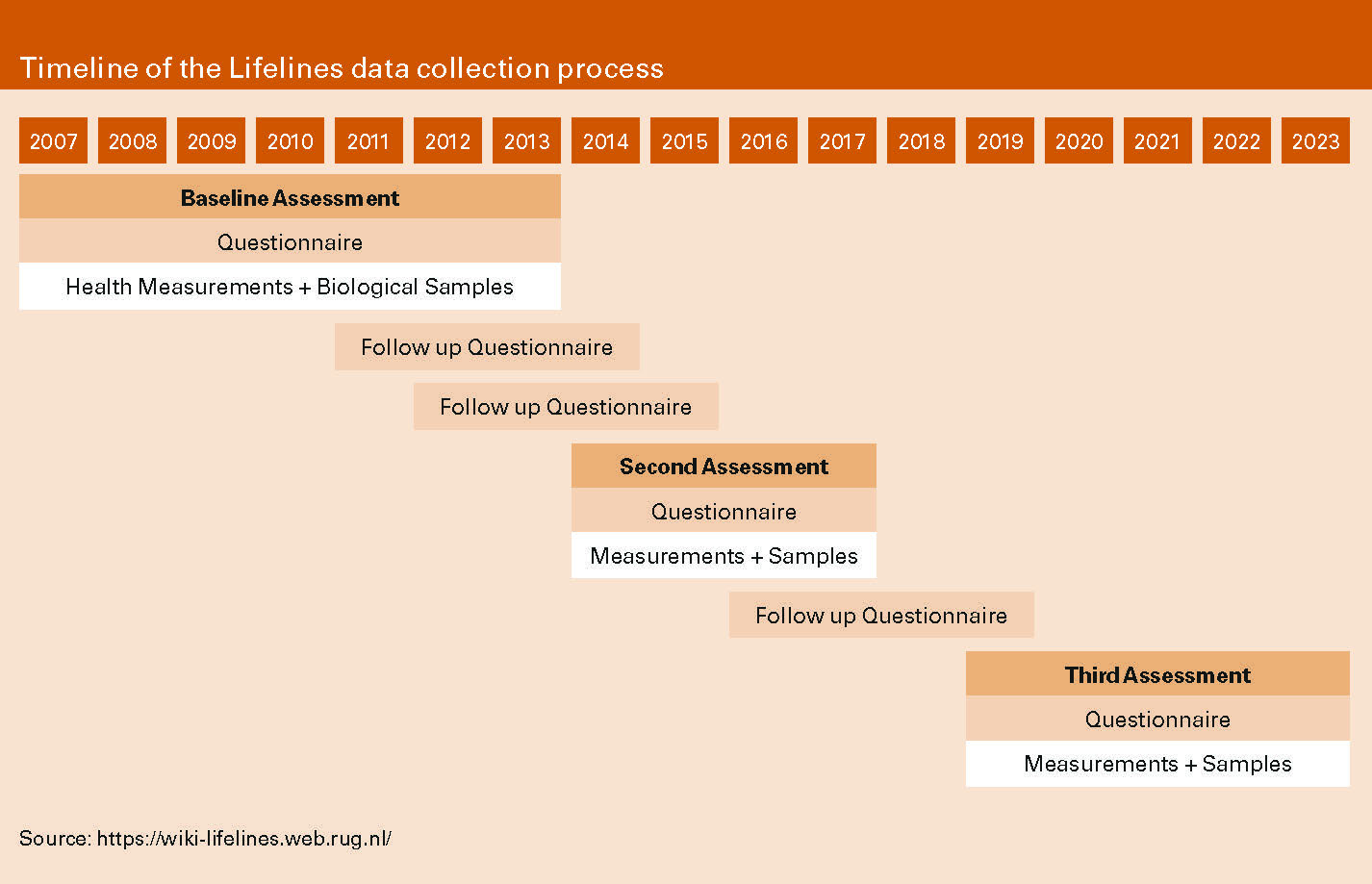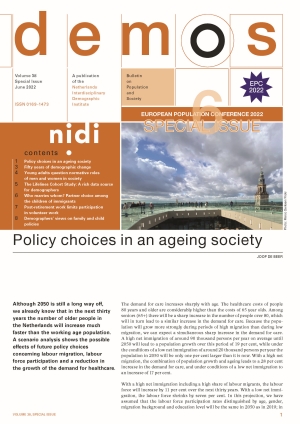The Lifelines Cohort Study is a large, prospective population-based cohort study and biobank, examining the biomedical, socio-demographic, behavioural, physical and psychological factors contributing to the health and disease of 167,729 individuals living in the three Northern provinces of the Netherlands. Between 2006 and 2013, eligible participants between 25 and 50 years of age were recruited through their general practitioner. They were also asked to indicate whether their family members (parents, partner, children, parents-in-law) would be willing to participate. Additionally, other interested individuals could self-register. This resulted in a three-generation cohort of 15,000 children (0-18 years), 140,000 adults (18-65 years), and 12,000 older adults (65+ years).

Lifelines offers numerous possibilities for demographic research: it contains rich sociodemographic information (e.g., partner status, employment status, educational attainment), as well as life-course events, such as moving house, starting (or ending) a relationship, having a child, or finding (or losing) a job. Furthermore, Lifelines is particularly strong in the assessment of health behaviours and outcomes: from alcohol consumption, dietary patterns, total- and domain-specific physical activity to biological markers, chronic diseases and even genetic information. Thus, a wide range of research questions on the association between life transitions and health (behaviours) can be answered using the Lifelines study.
Furthermore, Lifelines offers a very large sample, which contains almost 10% of the population of the three northern provinces of the Netherlands and has been shown to be broadly representative of the whole population. Moreover, it is an ongoing cohort study containing already five waves of observations – and a sixth one being gathered-, which allows a wide range of longitudinal analyses. During the COVID-19 pandemic, the “Lifelines COVID-19” sub-cohort (n=76,795) was developed, in order to assess the attitudes towards the lockdown regulations, and health (behaviours) of the observed population, with a total of 24 waves of data gathered between March 2020 and July 2021. Numerous studies focussing on the association between life events and health (behaviours) using Lifelines have been published recently. For instance, the association between unemployment trajectories and alcohol consumption patterns was studied. Further, it was investigated whether metabolic syndrome development – a risk factor for subsequent onset of type two diabetes mellitus and cardiovascular disease – differs by occupational groups or changes in employment status among older workers. In turn, the COVID sub-cohort was used to analyse the impact of the lockdown measures on alcohol consumption patterns. Last but not least, Lifelines data can be linked to external data sources, such as register data from Statistics Netherlands.
Lluís Mangot-Sala, NIDI-KNAW/UMCG University of Groningen, e-mail: mangot@nidi.nl
Katharina Runge, NIDI-KNAW/UMCG University of Groningen, e-mail: runge@nidi.nl
Literature
- Mangot-Sala L., N. Smidt, and A.C. Liefbroer (2021), The association between unemployment trajectories and alcohol consumption patterns. Evidence from a large prospective cohort in The Netherlands. Advances in Life Course Research, 100434.
- Runge K., S.K.R. van Zon, U. Bultmann, and K. Henkens (2021), Metabolic syndrome incidence in an aging workforce: Occupational differences and the role of health behaviors. SSM Population Health, 15, 100881.
- Mangot-Sala L., K.A. Tran, N. Smidt, and A.C. Liefbroer (2022), The impact of the COVID lockdown on alcohol consumption in the Netherlands. The role of living arrangements and social isolation. Drug and Alcohol Dependence, 233, 109349.


